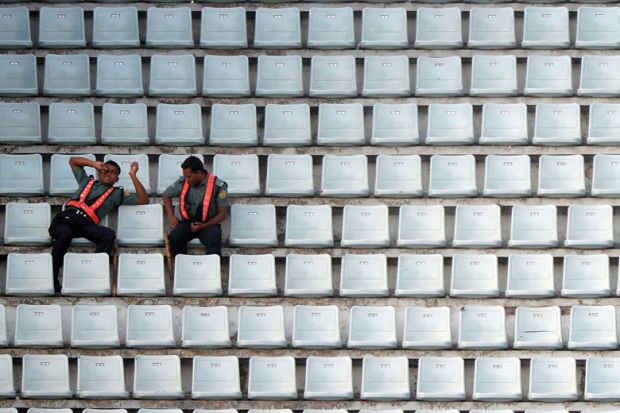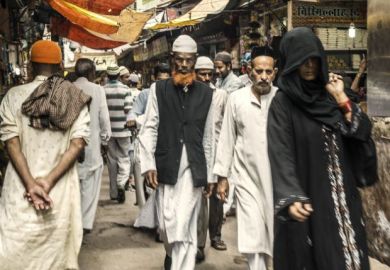A spike in the number of Indian students going abroad for PhDs is leaving domestic universities short on recruits, according to researchers.
Debate about the country’s doctoral diaspora was sparked last month by Upendra Nongthomba, a professor of genetics at the prestigious Indian Institute of Science, in a LinkedIn post expressing disbelief that his lab had received applications from only four aspiring students this year – five times fewer than in recent years.
“Last year my group hosted 12 summer project trainees…I would have been happy hosting any one of these bright students to do a PhD in my laboratory. But all of them wanted a foreign PhD,” he wrote.
Migration figures indicate that Professor Nongthomba’s lab is unlikely to be the only one seeing a decline, with the Ministry of External Affairs estimating that the number of students going abroad – albeit also including undergraduates as well as postgraduates – is set to rise to 1.5 million this year, up from 1.3 million last year.
And Yatharth Gulati, co-founder of the consultancy Rostrum Education, which provides tutoring and college counselling services to Indian students applying internationally, told Times Higher Education that there had been a “notable increase” in the number of Indian PhDs headed overseas, with the number of doctoral candidates contacting Rostrum this year having risen by 70 per cent over 2022.
Mr Gulati said many were won over by better employment prospects abroad and access to “state-of-the-art infrastructure”. Funding during the PhD was also a big factor.
“Although there may be funding opportunities for research in India, overseas students often have access to a greater number of scholarships,” he said.
Noble Kurian, an assistant professor at Chandigarh University, cited similar reasons.
“Uncertainty about [a] PhD and its fellowships are very evident in our country. In India, funding and fellowships are not regular, so the students are usually starved during their tenure,” he said.
Like many scholars, he shared the perception that Indian universities hiring early career researchers prefer candidates with overseas experience and foreign degrees.
Recently, the All India Research Scholars Association, an umbrella body representing Indian PhD students, urged the government to raise PhD stipends by 60 per cent, with an automatic upgrade for inflation every four years.
“Delayed revisions have imposed financial burdens due to rising living costs and inflation, hindering researchers’ commitment to impactful research,” the association wrote.
Its call has been backed by some politicians, including MP Shashi Tharoor, who warned that “bureaucratic callousness” has discouraged many students from continuing a career in research. Writing on social media, Dr Tharoor said a reappraisal of the stipend was overdue.
“Our stressed-out PhD scholars deserve a long-overdue increase in their stipends,” he wrote. “How can they meet their daily needs and undertake research amid rising inflation?”
Ramgopal Rao, formerly the director of the Indian Institute of Technology Delhi, said a 60 per cent rise might be “difficult” to achieve, but he believed that New Delhi was seriously considering increasing stipends.
“I’m sure the government is already contemplating a 30 to 40 per cent increase,” he said, noting that there were “multiple proposals” on the table.
For instance, New Delhi could adjust for inflation automatically every year. Another option could be for the government to adjust PhD stipends so they are in line with salaries for entry-level jobs for bachelor’s degree holders.
“An entry-level job in the government sector [pays] much higher…so the PhD tends to remain a last option,” he noted.
Register to continue
Why register?
- Registration is free and only takes a moment
- Once registered, you can read 3 articles a month
- Sign up for our newsletter
Subscribe
Or subscribe for unlimited access to:
- Unlimited access to news, views, insights & reviews
- Digital editions
- Digital access to THE’s university and college rankings analysis
Already registered or a current subscriber?








